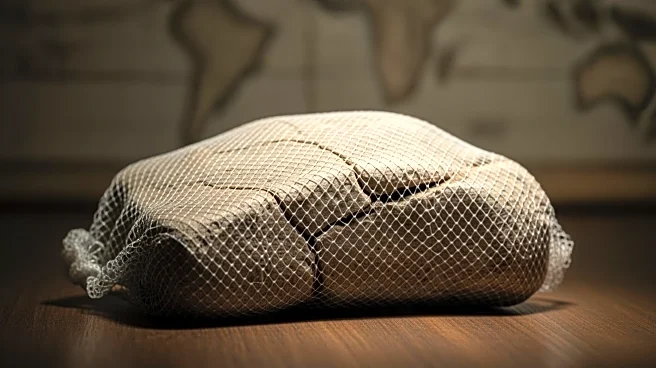What's Happening?
Law enforcement agencies across several countries have dismantled a sophisticated criminal network trafficking stolen cultural goods across Europe. A coordinated operation involving Eurojust and Europol
led to the arrest of 35 suspects linked to a smuggling ring attempting to sell thousands of ancient artifacts stolen from museums. The operation included 131 searches in seven countries, resulting in the seizure of over 3,000 artifacts valued at over 100 million euros ($116 million). The criminal group has been operating for over 16 years, with a money laundering investigation identifying over $1 billion in illicit funds.
Why It's Important?
The dismantling of this network is significant as it highlights the ongoing issue of cultural heritage theft and the illegal antiquities trade, which threatens historical preservation and national heritage. The operation underscores the importance of international cooperation in combating organized crime and protecting cultural assets. It also serves as a warning to museums and collectors about the risks of acquiring artifacts without proper provenance, potentially leading to legal repercussions and loss of valuable items.
What's Next?
Authorities will likely continue investigations to uncover further links and participants in the network, potentially leading to more arrests and seizures. The case may prompt stricter regulations and increased vigilance in the art and antiquities market to prevent similar crimes. Countries involved may also enhance their cultural heritage protection laws and collaborate more closely to safeguard their historical artifacts.









